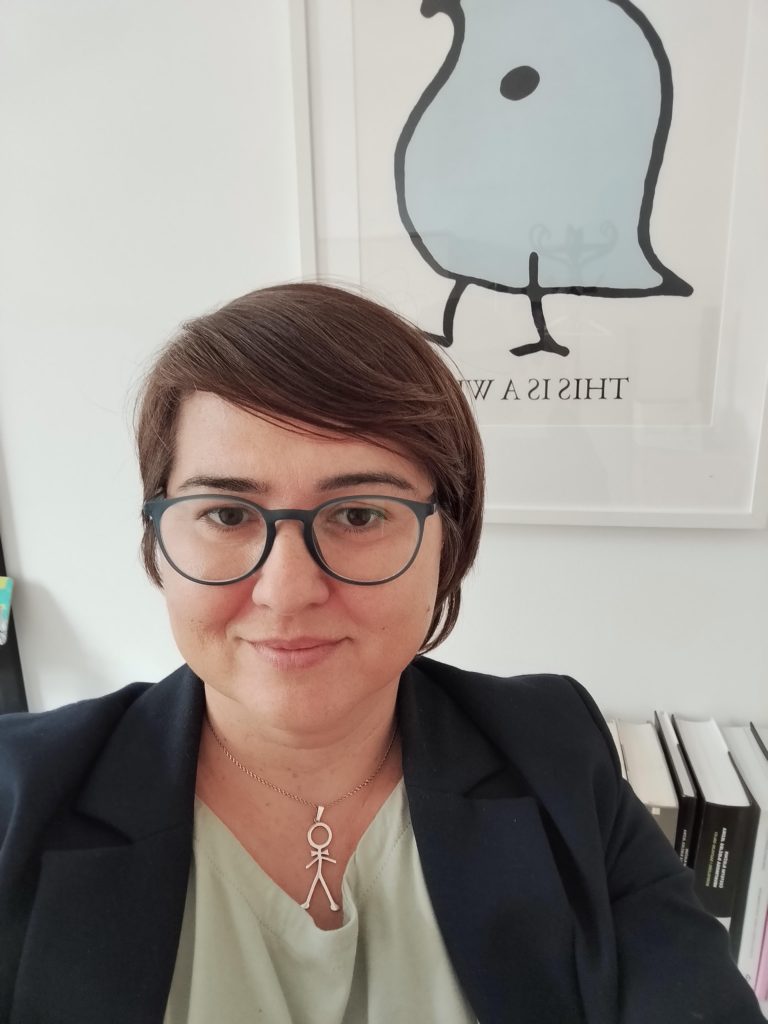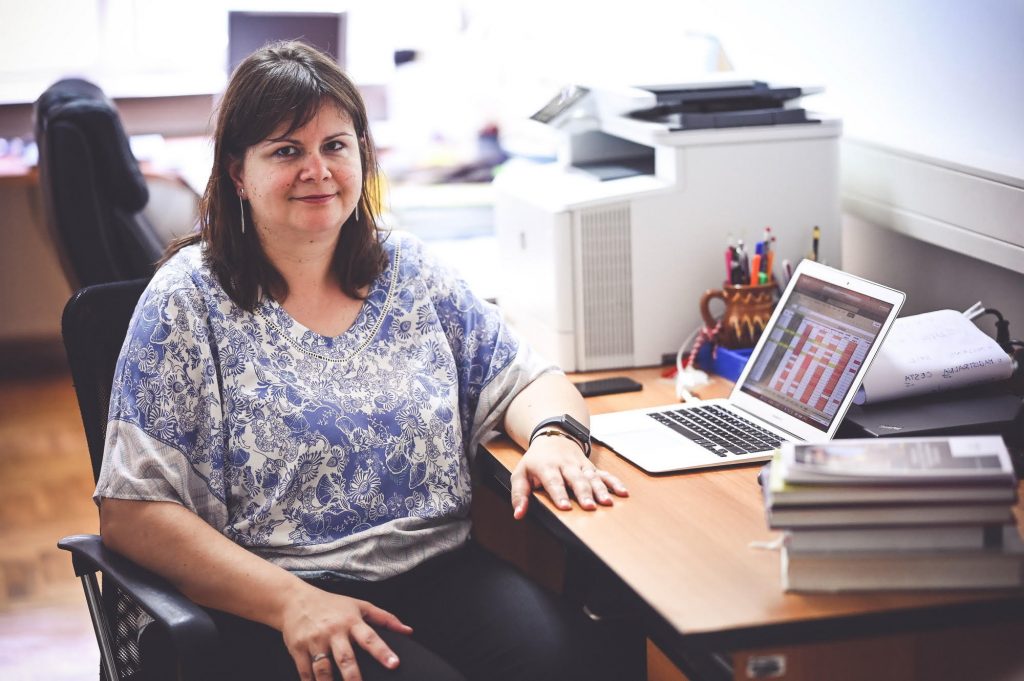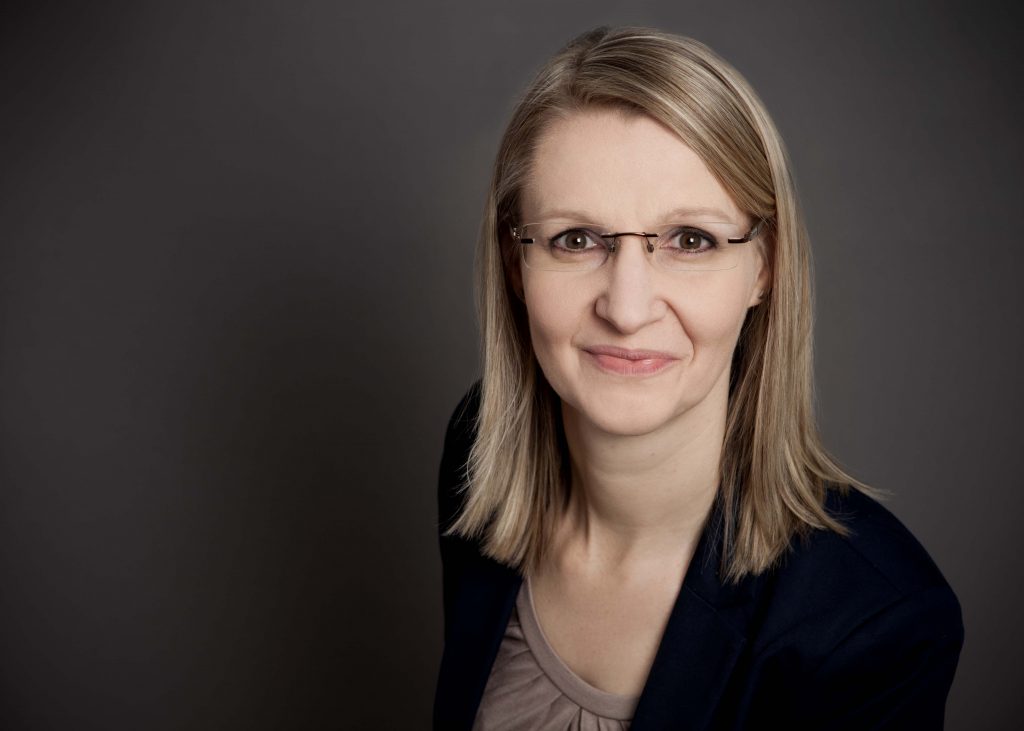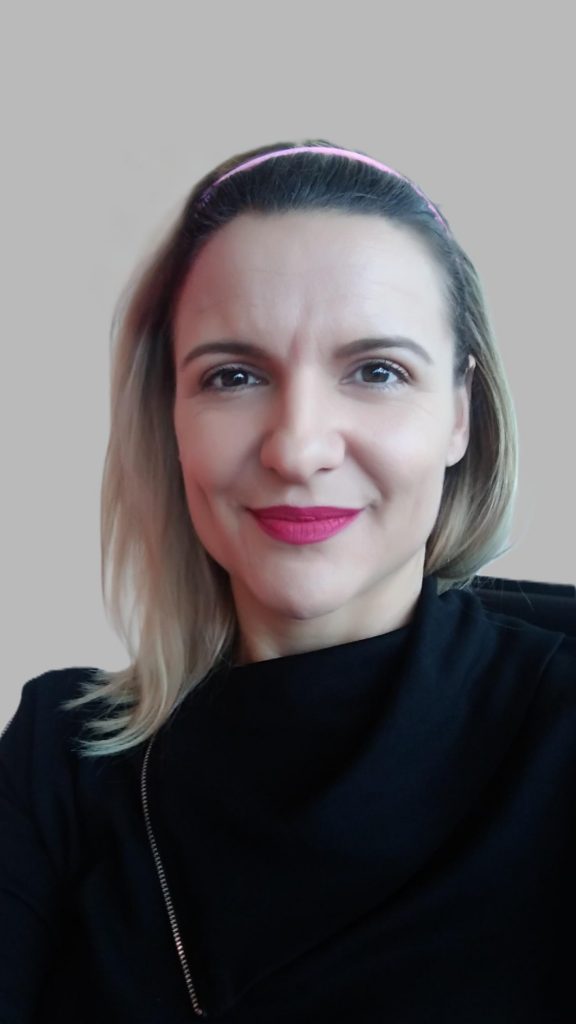Gordana Hržica
Preopćavanje u dječjem jeziku: dječji put kroz bogatstvo hrvatske glagolske morfologije
(Overgeneralisation in Child Language: Children’s Journey through the Richness of Croatian Verb Morphology)

Gordana Hržica, Associate Professor, PhD, is the Head of the Department of Speech and Language Pathology at the Faculty of Education and Rehabilitation Sciences, University of Zagreb. Her research interests include language development, language processing, bilingualism, computer-based language analysis, and language disorders. She has undertaken professional training at numerous international institutions (in Berlin, Reading, Vienna, Padua…), including a Marie Skłodowska-Curie postgraduate fellowship. She has led projects by the Croatian Science Foundation and the Ministry of Science, Education and Youth.
She has participated in numerous national and international research projects, most notably: the COST project Justice to youth language needs: human rights undermined by an invisible disadvantage (funded by the European Commission), the Inflection Points project (UK Arts and Humanities Research Council), and the project Vocabulary development of younger school-age children through innovative aesthetic and embodied learning methods (Croatian Science Foundation). She is the co-author of two books and the author or co-author of more than 50 scientific articles and 15 book chapters. She has presented at numerous international and national conferences and is actively involved in the development of diagnostic tools and materials for assessing language and communication disorders (for instance, as co-author of the Croatian adaptation of the New Reynell Developmental Language Scales and translator of the Autism Diagnostic Observation Schedule (ADOS).
Katarina Aladrović Slovaček
Jezične djelatnosti u nastavi hrvatskoga jezika – stvara li način poučavanja funkcionalno pismene generacije?
(Language Skills in Croatian Language Teaching – Does the Teaching Approach Create Functionally Literate Generations?)

Katarina Aladrović Slovaček, Associate Professor, PhD, was born on December 30, 1980, in Požega. She completed primary school in Pleternica and attended both music school and grammar school in Požega. She graduated in Croatian Language and Literature and Sociology from the Faculty of Humanities and Social Sciences at the University of Zagreb, where she also obtained her doctorate. During her studies, she received a scholarship from the University of Zagreb for academic excellence. She worked briefly as a Croatian language teacher in primary and secondary schools, and since 2007 she has been employed at the Faculty of Teacher Education, University of Zagreb. She has been appointed to the rank of Associate Professor and teaches the following courses: Croatian Language (for Teachers and Educators), Communicative Grammar of Croatian, Language Games and Learning Croatian, Reading for Pleasure 1 and 2, and Speaking Skills of Teachers and Educators.
In her academic work, she focuses on applied linguistics and early language development. She has actively participated in more than eighty scientific conferences in Croatia and abroad and has completed eight short-term study visits — in Germany, the United Kingdom, Belgium, Spain, and Slovenia. She has published around ninety scientific and professional papers. She has edited several collections of poetry, two books on folk customs and songs, and two monographs related to her beloved home region, Slavonia. She is also the author of the monograph 25 godina Dječjeg tamburaškog festivala Cvjetići glazbe (25 Years of the Children’s Tamburitza Festival Cvjetići glazbe) (Pleternica, 2017), the handbook Creative Language Games (2018), the scientific monograph From the Process of Acquiring to the Process of Learning Croatian Language (2019), and the bilingual handbook Language Learning at the Time of the Pandemic (2022, in Croatian and English). She also edited the scientific monograph Contemporary Reflections on the Acquisition and Learning of the Croatian Language (2022).
She has participated in several Erasmus+ projects, two Croatian Science Foundation projects, several institutional projects, and one bilateral collaboration. She is currently involved as a collaborator in the Erasmus+ project ACIIS (2023–2026), the Horizon project AECED (2023–2026), the JENGRIH project (2024–2025, Faculty of Humanities and Social Sciences), and the Croatian Science Foundation project RAPID (2024–2027). She is currently the principal investigator of the Croatian Science Foundation project RjeŠko – Vocabulary development of younger school-age children through innovative aesthetic and embodied learning methods (2024–2027). Since September 2023, she has also served as Head of the Postgraduate doctoral study Language, Literature and Culture in the Context of Early Childhood, Preschool, and Primary Education at the Faculty of Teacher Education in Zagreb.
In her free time, she plays the organ, participates in liturgical reading, bibliodrama, psychotherapy, NTC learning, and singing. She is the mother of four children: Andrija, Pavla, Matija, and Karla. She regularly pursues both teaching and research professional development by attending seminars and workshops in Croatia and abroad, as well as by continuously engaging with academic literature and various online courses.
Karen Glasser
Connecting literacy and oracy in the primary EFL classroom: Fostering language skills and language awareness through the Integrated Approach

Dr. Karen Glaser is Professor of TEFL in Primary School at Leipzig University. She holds a PhD in English Applied Linguistics from Leuphana University Lüneburg, Germany, and an MA in TESL from Kent State University, Ohio, USA. Her research interests include L2 pragmatics, early L2 literacy, classroom interaction, and teacher education. She is the author of Inductive or Deductive? The Impact of Method of Instruction on the Acquisition of Pragmatic Competence in EFL and has contributed to volumes on early language learning (e.g. Current Research into Young Foreign Language Learners’ Literacy Skills), teacher education (e.g. Classroom Discourse Competence: Perspectives for Language Teacher Education), and pragmatics (e.g. L2 Pragmatics in Action). She is co-editor of the Special Issues Embracing Social Interaction in the L2 Classroom (Classroom Discourse) and L2 Pragmatics in Language Teacher Education (System), as well as of the open-access volume Early Language Education in Instructed Contexts (John Benjamins).
Ivana Marinić
Teachability of Speaking Skills to Young Learners: Insights from EFL Learning and Acquisition

Dr. Ivana Marinić is an Associate Professor and Head of the Department of English and German Studies at the Faculty of Education, Josip Juraj Strossmayer University of Osijek. She was born and educated in Osijek, where she also completed her doctoral studies in 2015 with a dissertation entitled Construction and Conceptualization in the Multilingual Mind.
From 1998 to 2007, she taught English at Ljudevit Gaj Primary School in Osijek, gaining extensive experience in teaching EFL to young learners and engaging in ongoing professional development in English language teaching methodology, drama pedagogy, and inclusive education. She contributed to the OECD project focused on the development of education for children with special needs, which resulted in the co-authorship of the handbook Special Child (2007).
At the Faculty of Education, she teaches courses: English for specific purposes, Phonology of English language, Teaching speaking and pronunciation of EFL to young learners, and Language and philosophy of Education. She serves on academic conference committees and is an active collaborator on several institutional research projects. She led the internal project Vocabulary Development in Preschool and Early Primary School Children in Their First and Foreign Languages, hosted by the Faculty of Education.
She is a co-author of the Footsteps textbook series (Školska knjiga), designed for teaching English from grades five through eight in primary education. She has developed a wide range of digital teaching materials to support language instruction.
Her plenary lecture builds upon the themes explored in the scientific monograph Teaching Speaking to Young Learners of English as a Foreign Language, co-authored with Associate Professor Dr. Ivana Moritz, and reflects her broader research interests in discourse analysis and cognitive linguistics in language education.

